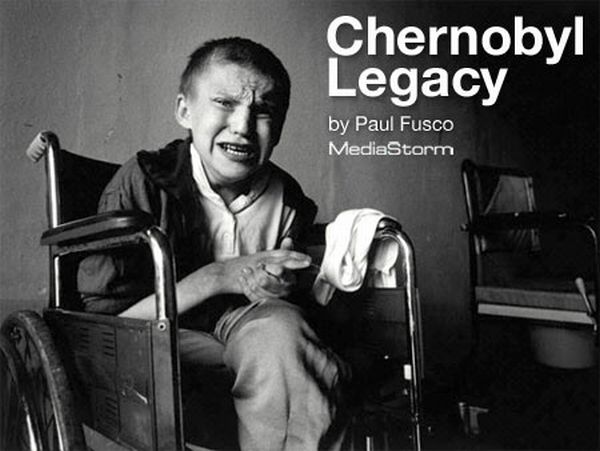原発事故と自動車事故を無理に比較して、原発事故被害を過小評価する人がいることを最近知りました。原発マフィアの手下なのかも知れませんが、基本的知識や最低限の想像力に欠ける人の発言を聞くと本当に疲れます。
しかし、発言主が著名人だったり立派な肩書を持っている場合、聞く側が用心していないと簡単にだまされてしまうケースも多いのです。だまされない為には情報収集と共に、自分の頭の中を整理する必要があります。
IPPNW(=International Physicians for the Prevention of Nuclear War:核戦争防止国際医師会議)が役に立ちそうな記事を書いているので、リンクを以下に貼ります。( )内は私の日本語訳です。
スポンサーリンク
「Why nuclear disasters are different from any other」(原発事故は他の事故と何が異なるのか)
上記リンクの英文記事を以下に引用します。( )内は私の日本語訳です。参考にしてください。
引用始め
****************
「Frequency of occurrence and causes:
In the year 2015 there exist approximately 440 nuclear power plants (NPPs) in 28 countries, often in areas of high population density. After the NPP accidents of Three Mile Island (USA, 1979), Chernobyl (1986) and Fukushima (Japan, 2011) nuclear disasters unfortunately can no longer be considered hypothetical or unlikely. Among the diversity of the causes of accidents, technical malfunctions, human error, aging facilities, fire risk, exceptional climatic events, terrorism and plane crashes have to be mentioned.」
(事故の発生頻度と原因:
2015年現在、世界28か国に原子力発電所は約440基存在し、その多くが人口密集地域に位置している。スリーマイル(1979年:アメリカ)、チェルノブイリ(1986年)、そして福島(2011年:日本)で事故が起こって以降は、原発災害のことを起こりそうもない想定上のことだと言えなくなってしまった。事故原因は多岐に渡っており、技術的欠陥・人間が冒すミス・経年劣化・火事の危険・気象異変・テロ・飛行機の墜落激突を考慮に入れねばならない。)
「Magnitude, complexity and nuclear fallout:
Nuclear disasters are not comparable to other types of natural or technological disasters because of their magnitude and complexity and the high risk of regional and global radioactive contamination by a large diversity of released radio-enuclides, which are invisible, odorless and frequently long lasting.」
(事故の規模・複雑さ・放射性物質:
原発災害は規模が大きくて複雑なだけでなく、放出される放射性物質が多種類で広範囲を汚染する危険性が高い。放射性物質は目に見えず、臭いもせず、長期間留まることが多い。それ故、原発災害は、他の自然災害や技術ミスによる事故と比較できる代物ではないのだ。)
「Management:
managing nuclear disasters is very complicated as emergency measures are extremely difficult, due to possibly high radiation levels of the site of the accident. Furthermore, the geographical and meteorological situations may influence salvage measures. Long term management may require costly wide-spread decontamination and storage of large amounts of high level radio-active waste.」
(管理の困難さ:
原発災害の管理はとても複雑なものだ。事故現場の放射能レベルが高くなっていると、緊急対応策の実行は極めて困難になる。さらには、地理的・気象的要因が対応の足を引っ張る可能性がある。広範囲の除染には多額の費用がかかり、高レベル放射性廃棄物を大量に保管しなければならないなど、原発災害の長期的管理には困難が伴う。)
「Immediate and long-term health effects:
Due to ionizing radiation nuclear disasters may have serious immediate effects on the health of the salvage teams. Due to their limited operating times in a high radiation environment, recruitment of large numbers of liquidators must be anticipated. Besides short-term health effects, environmental contamination may have serious long-term consequences for the health of the population and animals living in the vicinity of the NPPs. In particular pregnant women and small children may sustain genetic damage, which could be expressed only years after exposure. Other long-term effects are different neoplastic and non-neoplastic diseases.」
(健康面での急性障害・長期的影響:
原発災害で発生する電離放射線により、原発作業員は深刻な急性障害に陥る可能性がある。線量が高い環境下では作業時間が限られるため、原発作業員の大量募集を想定しなければならない。急性障害だけではない。環境が放射性物質で汚染されるため、原発周辺の住民や動物が長期的に深刻な健康被害を受ける可能性がある。特に妊婦や小さな子供は遺伝子が損傷する可能性があり、それが明らかになるのは被曝後何年も経ってからだ。長期的影響は他にもあり、腫瘍性疾患と非腫瘍性疾患に分けられる。)
****************
引用終わり
最後に:
冒頭の写真を含めて、様々な健康被害の状況を下記リンク先で確認することが出来ます。
実際、原発はあまりにリスクが大きいため、世界中の保険会社から見放されています。つまり、社会的に受け入れられていないということです。たくさんの保険会社が存在する自動車とは大違いですね。
「全国で起こっている自動車事故と比べれば、原発事故なんて大した事ねえ」などという発言がいかに滑稽か、ご理解いただけたと思います。
以上
